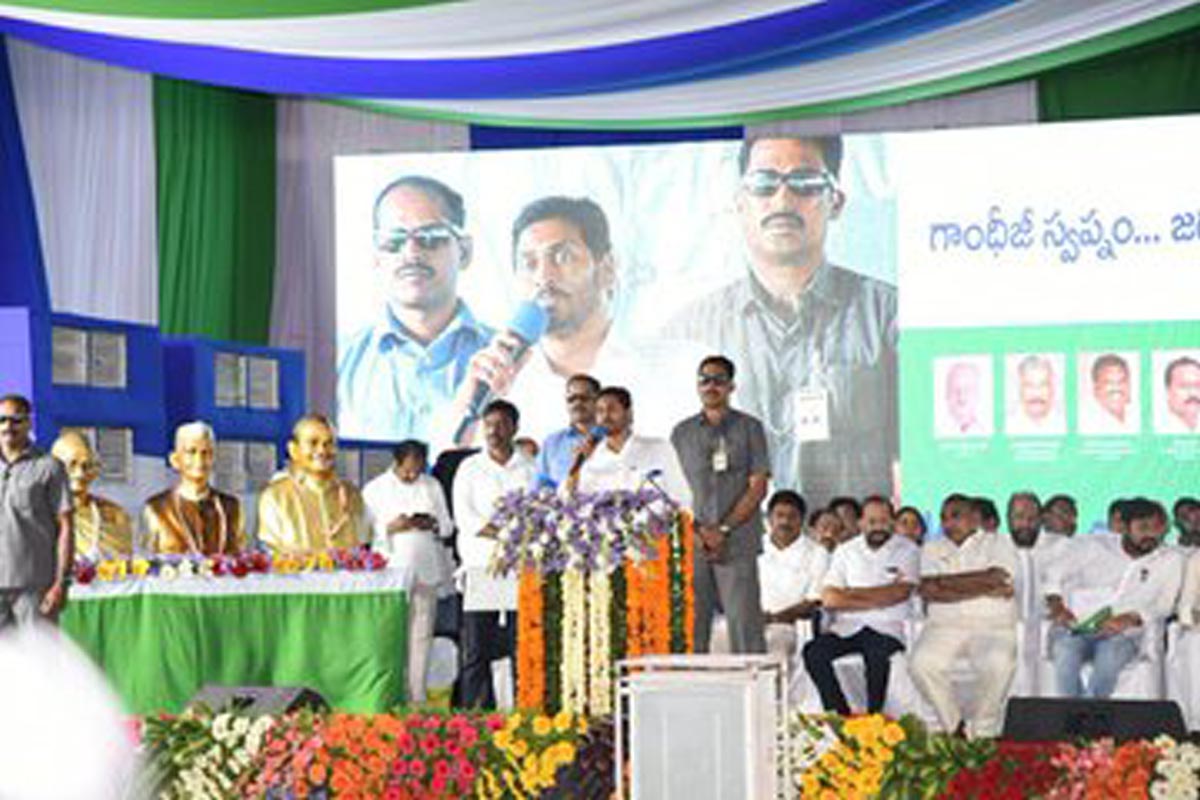The proposal of Andhra Pradesh Chief Minister Jagan Mohan Reddy to split the State’s capital into three ~ the executive, legislative and the judicial ~ and distribute them in three cities, Visakhapatnam, Amaravati and Kurnool, is an impractical one and is unlikely to find favour with the people of the State. Jagan Mohan was inspired by the system in vogue in South Africa where the administrative capital is in Pretoria, national legislature is in Cape Town and Bloemfontein is the judicial capital.
The proposal would have made sense if it was made at the time of formation of the State five years ago as the three cities represent the three regions of Andhra Pradesh and would have found resonance with the people. In fact, the expert committee under the chairmanship of KC Sivaramakrishnan, appointed by the Union government, did suggest distributing location of governance to existing cities in the central region of the State. Against all advice, then Chief Minister Chandrababu Naidu came out with his grandiose plan of building a ‘Singapore’ in the most fertile flood plains of the Krishna in and around Amaravati, a Buddhist centre of yore.
Advertisement
Farmers most reluctantly parted with their land and thousands of crore rupees had already been spent on developing Naidu’s dream city of Amaravati. Shifting of the executive wing of the government to Visakhapatnam and the judicial wing to Kurnool after a new Secretariat and High Court complex had already been built in Amaravati can be compared to Mohammad bin Tughluq shifting India’s capital from Delhi to Aurangabad. Any shifting of the capital should not be left to the whims and fancies of the Chief Minister of the day.
In Tamil Nadu, the Secretariat functions from Fort St George in Chennai, which belongs to the Army. The DMK, during its last term in office from 2006 to 2011, built a new Secretariat complex in the government estate in the city and started functioning from there. The AIADMK on return to power in 2011 shifted the Secretariat back to the rented premises in the Fort at great cost to the public simply because it was built by the DMK. Farmers in the Amaravati capital region who parted with about 32,000 acres of their fertile land for the setting up of the capital feel cheated.
They were promised a developed plot each in the new city valued at several crore rupees. Even if the land is returned to them now, they cannot revert to agriculture as partial development has already taken place. As unrest grows among farmers, Section 30 of the Police Act and Section 144 have been enforced in the area and agitators have been warned that stern action would be taken against violators. Additional forces have been deployed at the Secretariat, Assembly, High Court and other structures in Amaravati as farmers have intensified their agitation. Civil society organisations have joined the farmers in stepping up the agitation against dividing the capital into three.
